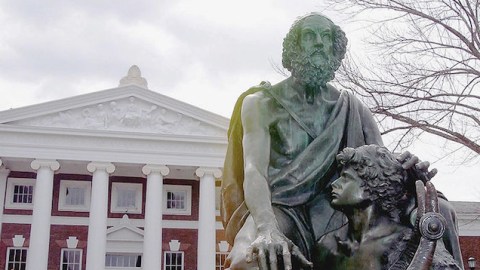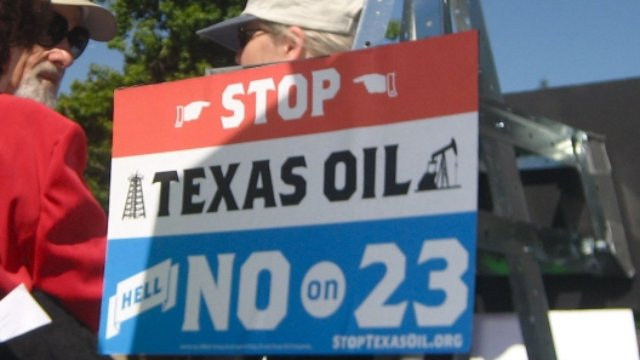Criminalizing Science

Not every scientific paper is great work, as any scientist will tell you. But shoddy work gets ignored or quickly debunked. There is an enormous incentive for scientists to debunk promising theories. Doing so can make you enemies, but it also can make your career. Over time, only the theories that can survive this critical scrutiny become accepted by the scientific community.
The thesis that human activity is rapidly causing the planet to warm is widely accepted precisely because, in spite of what some politicians say, attempts to debunk it have largely failed. The objections that politicians make to the idea—that temperatures have not really been going up, that the recent warming trend is just part of a natural cycle, and that it is being caused by sunspots rather than by human activity—are all theories that have been put forward and largely rejected by the scientific community. There are a handful of climatologists who remain skeptical of global warming, who are quoted over and over again by denialist blogs, but a study last year showed that 97% of working climatologists believe that human activity is causing global warming. The one group of working scientists that was skeptical was petroleum geologists, who aren’t experts in climate science, but whose income obviously depends on fossil fuel production.
The truth is, of course, that there are things we don’t understand about the climate. But it would be wishful thinking to assume that the climate change won’t be a problem just because we don’t want it to be. And the idea that the whole thing is some huge hoax perpetrated by scientists to benefit green technology start-ups, is as ridiculous as the idea that historians made up the entire ancient Greek civilization. The real vested financial interests—the petroleum companies—are in denying global warming, not fabricating it.
Nevertheless, the desire to deny that global warming could be real and the fantasy that it is a hoax have led Virginia Attorney General Ken Cuccinelli to try to subpoena documents from the University of Virginia relating to climate scientist Michael Mann’s applications for state-funded grants, on the grounds that Mann had been trying to defraud the state of Virginia. A Virginia judge denied Cuccinelli’s request, on the grounds that Cuccinelli never provided the court with any reason to believe that there was anything fraudulent about Mann’s work.
Cuccinelli appears to have simply been fishing for grounds to accuse Mann of fraud. Cuccinelli doesn’t seem to have had any evidence that Mann’s work was fraudulent outside of the fact that Mann, the director of Penn State’s Earth System Science Center, was one of the scientists involved in the Climategate scandal. Mann was accused of trying to block the publication of articles critical of his work—work unrelated to the grant applications, which don’t even concern climate change—as part of the scandal, but not of falsifying data. And, as I wrote at the time, while the scientists involved in Climategate may have tried to make their work seem more compelling or significant than it was, what they did hardly amounts to fraud.
In any case, criminalizing shoddy scientific work is a terrible idea. Fabricating evidence out of whole cloth would be one thing. But scientists inevitably make mistakes in their work. Sometimes they even go too far trying to present their work in the best light. But when scientists do go too far, they just embarrass themselves. Other scientists will discover their errors soon enough—and an Attorney General with no background in climate science isn’t likely to catch mistakes that climatologists can’t. Grant applications are reviewed by other scientists, whose job it is to screen out bad proposals. If a scientist makes unsupportable claims in a grant application, it shouldn’t be a police matter.
Cuccinelli now says that Mann’s papers were fraudulent because they show a “lack of rigor regarding the statistical analysis of the alleged data.” But, as Real Climate says, this logic would essentially open up the whole scientific literature to fraud investigations. While scientists do the best they can, essentially all scientific work could stand to be more statistically rigorous. Even the best papers can be improved by criticism. Cuccinelli’s real motive—since he appears to have no real case against Mann’s recent work—seems to be harassing a scientist whose research program Cuccinelli doesn’t like. As The Union of Concerned Scientists said in a statement, subpoenaing the grant application materials sends the message “that legitimate scientific research is not welcome in Virginia.” Jeffrey Holt, a professor of neuroscience at the University of Virginia, put it more strongly in a separate statement, saying that Cuccinelli’s harassment of Mann “harkens back to the Dark Ages, when scientists were tried for heresy when their findings ran contrary to the dogma of the day.”





